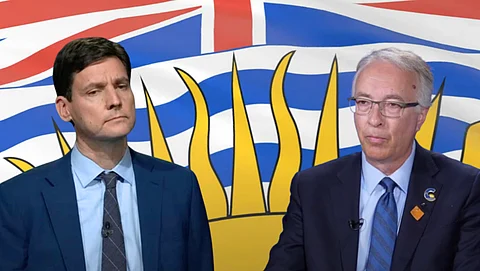

A poll recently conducted by Leger has found little change in how British Columbians feel about provincial politics since the election in October.
Also relatively unchanged was residents' perceptions of big issues, with a majority respondents still saying they believe British Columbia is "on the wrong track."
Of the 1,001 people who responded to the poll between January 24 and 26, 44% said they intended to vote for the BC NDP, an increase of 1% since results were last tabulated in August. Support for the BC Conservatives fell by an equivalent amount, ending up at 42%, while the BC Greens rose to 10%.
In the election, the BC NDP came out with 47 seats, with the BC Conservatives and BC Greens grabbing 44 and two, respectively.
The high cost of housing was still British Columbians' number one concern, followed by healthcare, inflation, and the economy. Taxes lost the fifth place spot to tariffs from the United States, which was only added to the most recent iteration of the survey. Homelessness, climate change, crime, and the opioid crisis rounded off the top ten.
Approval ratings for how the government has handled major issues such as wildfire responses, reconciliation, transportation, education, and unemployment largely either stayed the same or went up since August. When it came to the economy, labour negotiations with unions, government spending, and crime, however, there was a slight decrease in public approval.
A total of 37% of British Columbians said they felt the province was headed in the "right direction," though only 4% "strongly" agreed with that sentiment. Conversely, 54% said BC was on the "wrong track," with those in the "somewhat" and "strongly" camp evenly split at 27%.
The only notable changes pertained to approval for party leaders. Now-former BC Greens leader Sonia Furstenau saw her rating rise to 38%, while BC NDP leader David Eby jumped to 49%. The only leader who saw their disapproval rating go up was the BC Conservatives' John Rustad, who went from 20% to 27%.
